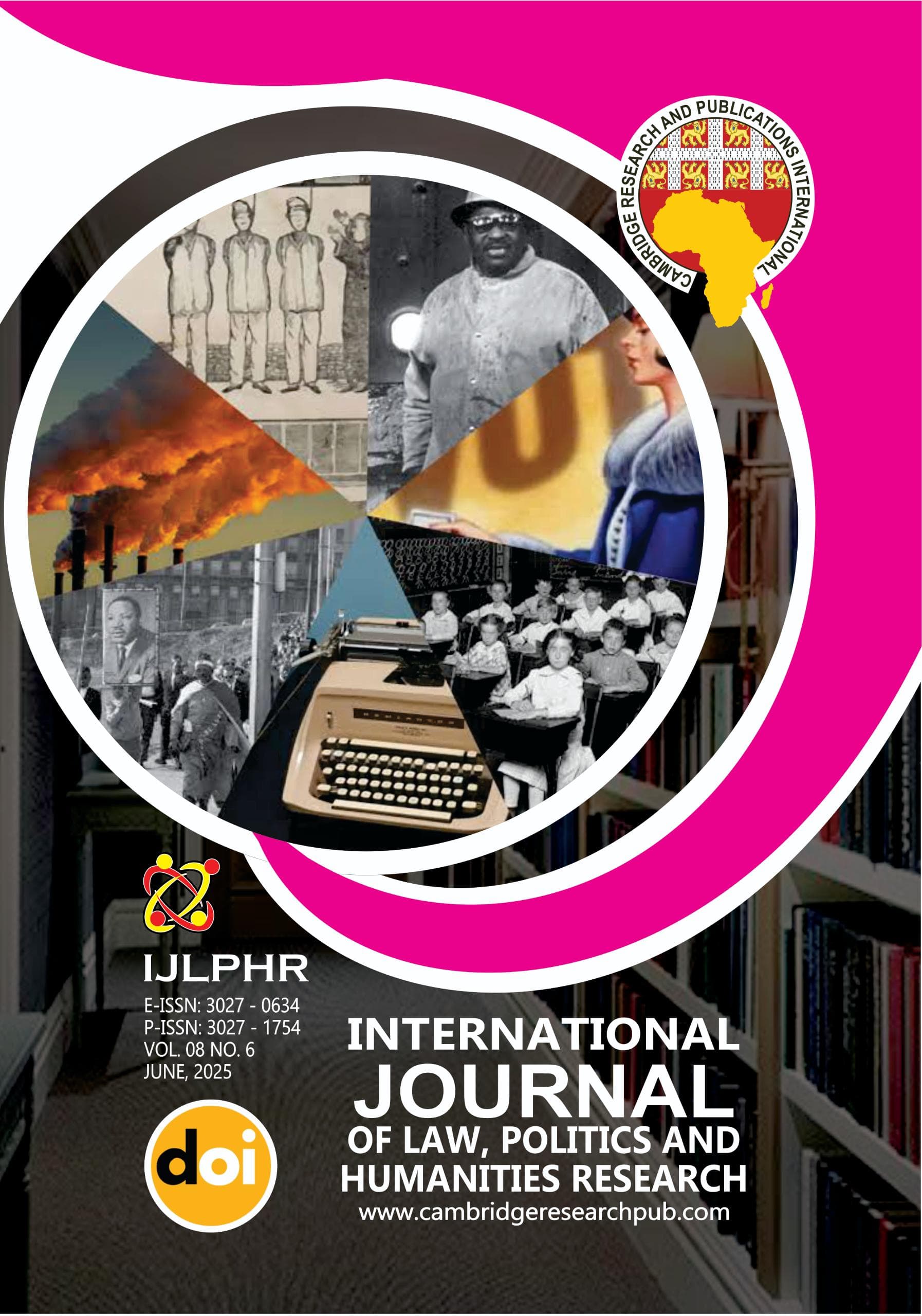A PRAGMATIC STYLISTIC STUDY OF SELECTED ENDBADGOVERNACE PROTEST CAPTIONS ON THE SOCIAL MEDIA
Main Article Content
Abstract
Within the context of the EndBadGovernance protests, this study investigates the ways in which language was utilised in social media captions in order to successfully express messages and gain support. In reaction to pervasive corruption, inadequate governance, and socio-economic difficulties, the EndBadGovernance movement was launched, and it has gained a large amount of attention on the internet. This research takes a pragmatic approach to the investigation of the ways in which protesters utilise language to carry out speech actions, establish implicit meanings, and build cohesiveness. The research includes an examination of a wide range of captions that were gathered from important social media sites such as Twitter, Facebook, and Instagram. The collection of these captions took place during the height of the demonstrations. In light of the data, it appears that confrontational and directive speech acts were the most prevalent. These speech acts were mostly utilised to critique measures taken by the government and to motivate collective efforts. Furthermore, the purposeful use of rhetorical strategies with these captions, such as metaphors, hashtags, and repetition, showed the persuasive influence that these captions have in influencing public conversation and establishing a feeling of urgency. The findings of this study contribute to a deeper comprehension of digital activism by illuminating the significant position that language plays in online protest movements. This is especially meaningful in situations when traditional avenues of protest may be restricted. In this article, the ramifications of these findings are evaluated in connection to the larger influence that social media activism has on governance and public policy. This analysis provides policymakers, activists, and researchers with significant insights.
Downloads
Article Details
Issue
Section

This work is licensed under a Creative Commons Attribution 4.0 International License.




